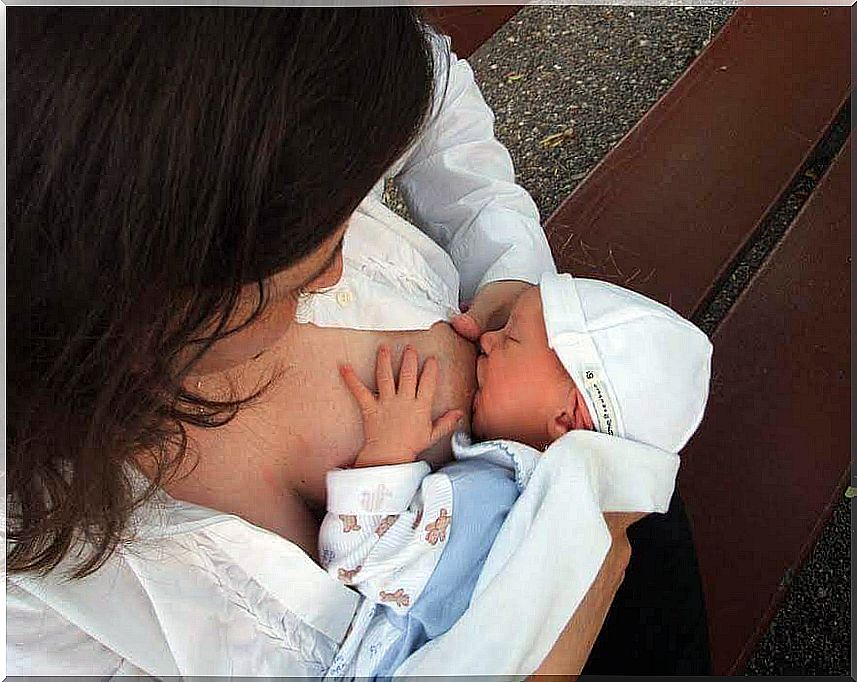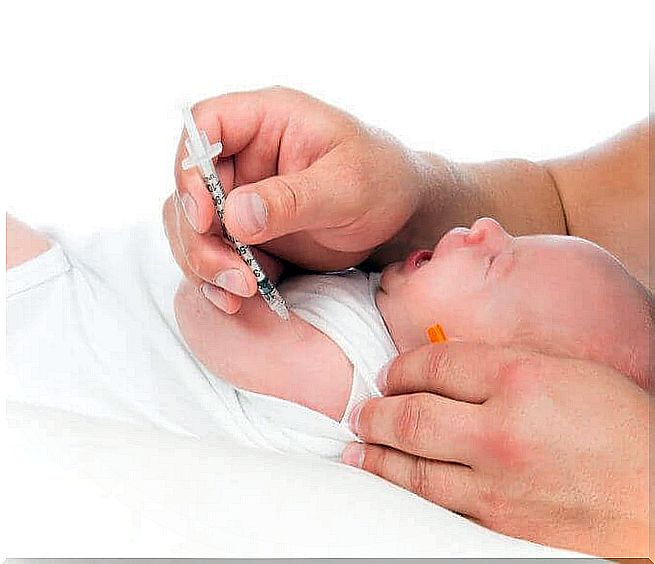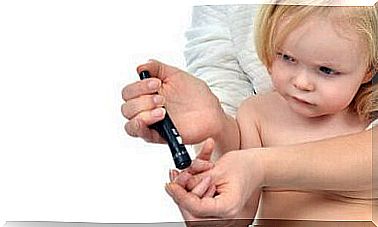The Importance Of Vitamin K For Newborns – Parenthood

There are several reasons why a baby can be born with low levels of vitamin K because this element does not easily pass through the lining of the placenta. This vitamin is very important for the baby because it can prevent hemorrhagic disease of the newborn.
And although it is a very rare disease, its incidence is increased in babies born after a complicated delivery, by cesarean section, in premature babies and whose mothers had to take medicines for coagulation, epilepsy and tuberculosis during the pregnancy.
Timely administration of vitamin K to newborns – the deficiency of which can be determined by routine medical examinations – can save a child’s life, as low levels of this vitamin can cause bleeding in the baby. urine, ears and nose.
One milligram of vitamin K can prevent a newborn from having internal bleeding, which is often imperceptible. Due to the importance of this vitamin for the life of the baby, after performing the relevant medical tests, one milligram of vitamin K is usually given to the baby intramuscularly.
Breast milk is rich in vitamin K

Vitamin K deficiency has many solutions and one of them is breastfeeding. Breast milk is rich in this vitamin, which is why the doses normally given to the baby are very low and are mainly used to prevent bleeding.
The first milk that comes from a mother’s breast – called colostrum – is very rich in nutrients and vitamin K. Breastfeeding helps to minimize the risk of bleeding due to a deficiency in this vitamin.
It is imperative that the baby sucks off all the colostrum at birth and that his mother makes sure that all the milk is extracted because the last milk contains more vitamin K.
Powdered milk also contains good amounts of vitamin K to prevent bleeding in children. However, the baby should be exclusively breastfed with breast milk for the first few months after birth.
Prevent bleeding
The administration of vitamin K is one of the guidelines normally observed by healthcare workers who, based on various medical studies, recommend giving an injection during the first two or four hours of life. It is the only painful procedure for the baby after birth.
While vitamin K can be given as an injection or as a few drops in the mouth, specialists advise injecting it to make sure the baby is not bleeding.
This injection can be given when the mother is breastfeeding her baby, as skin-to-skin contact helps the newborn cope with the pain of the sting.
This injection is performed to prevent hemorrhagic disease of the newborn, which although rare, can have very serious consequences for the baby. This disease is characterized by hemorrhage, which the body of the newborn cannot stop naturally, due to the deficiency of vitamin K.
This bleeding usually affects various parts of the body such as the umbilical cord or the digestive system and occurs at different times (early, classic or late bleeding).
The most common form of this disease, the classic form, occurs between 2 and 7 days and affects 0.25 to 1.7% of newborns who did not receive vitamin K prophylaxis during childbirth. There are no confirmed cases in babies who received it, according to medical studies published on the Internet on the matter.

It is also important for you to know that vitamin K is essential for blood clotting.
This vitamin is naturally synthesized by our intestines and is also found in a wide range of foods such as green leafy vegetables, liver, eggs, soybeans, and some fruits such as kiwi.









